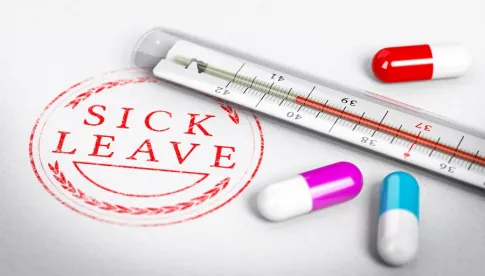As a reminder, the New York City Earned Safe and Sick Time Act (“Paid Safe/Sick Leave Law”) became effective on May 5, 2018. The Paid Safe/Sick Leave Law applies to all employers with five or more employees who work more than 80 hours a year in New York City and requires employers to provide up to 40 hours (5 days) of paid safe and sick leave. Employers with less than five employees must provide unpaid sick and safe leave. In order to notify employees about their rights under the Paid Safe/Sick Leave Law, New York City employers must distribute written notice to their employees on the first day of employment or by June 4, 2018. Employers can find the new Notice of Employee Rights on the New York City Department of Consumer Affairs (“DCA”) website, available here. The DCA also provides the new notice in Spanish, Chinese and 24 other languages.
The Paid Safe/Sick Leave Law expanded New York City’s paid sick leave to include “safe time,” if an employee or family member is a victim of family offense matters, sexual abuse, stalking or human trafficking. New York City is the first city to extend safe leave to survivors of human trafficking. Accordingly, eligible employees working in New York City are now permitted to take paid leave as safe time in the following circumstances:
-
to obtain services from a domestic violence shelter, rape crisis center, or other shelter or services program for relief from a family offense matter, sexual offense, stalking, or human trafficking;
-
to participate in safety planning, temporarily or permanently relocate, or take other actions to increase the safety of the employee or employee’s family members from future family offense matters, sexual offenses, stalking, or human trafficking;
-
to meet with a civil attorney or other social service provider to obtain information and advice on, and prepare for or participate in, any criminal or civil proceeding, including but not limited to matters related to a family offense matter, sexual offense, stalking, human trafficking, custody, visitation, matrimonial issues, orders of protection, immigration, housing, discrimination in employment, housing, or consumer credit;
-
to file a complaint or domestic incident report with law enforcement;
-
to meet with a district attorney’s office;
-
to enroll children in a new school; or
-
to take other actions necessary to maintain, improve, or restore the physical, psychological, or economic health or safety of the employee or employee’s family member or to protect those who associate or work with the employee.
In addition, New York City followed the latest trend in paid sick leave laws by broadening the definition of “family member” to include a wider range of relationships. The prior list of covered family members for whom an employee could take leave to care for included the employee’s spouse, domestic partner, parent, child, sibling, grandparent, grandchild or the child or parent of the employee’s spouse or domestic partner). The list now includes “any other individual related by blood to the employee; and any other individual whose close association with the employee is the equivalent of a family relationship.”
If not done already, employers should immediately distribute the new Notice of Employee Rights to all current employees. Employers should also update existing paid sick leave policies and distribute them to covered employees notifying them about Company-specific policies and procedures in compliance with the new law. Lastly, employers should train their human resource professionals and/or managers who handle requests for leave on the new paid safe and sick time requirements.





 />i
/>i
